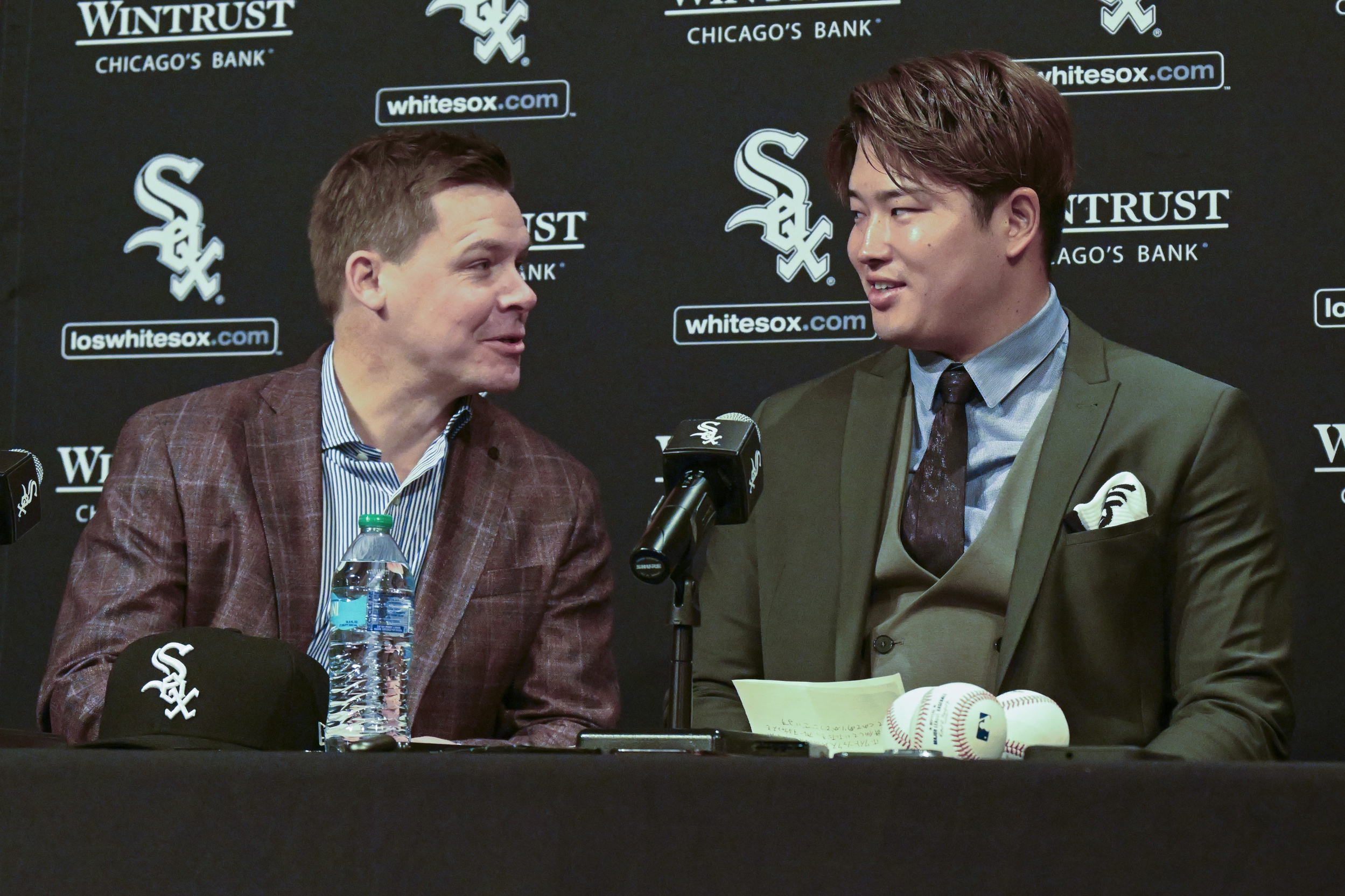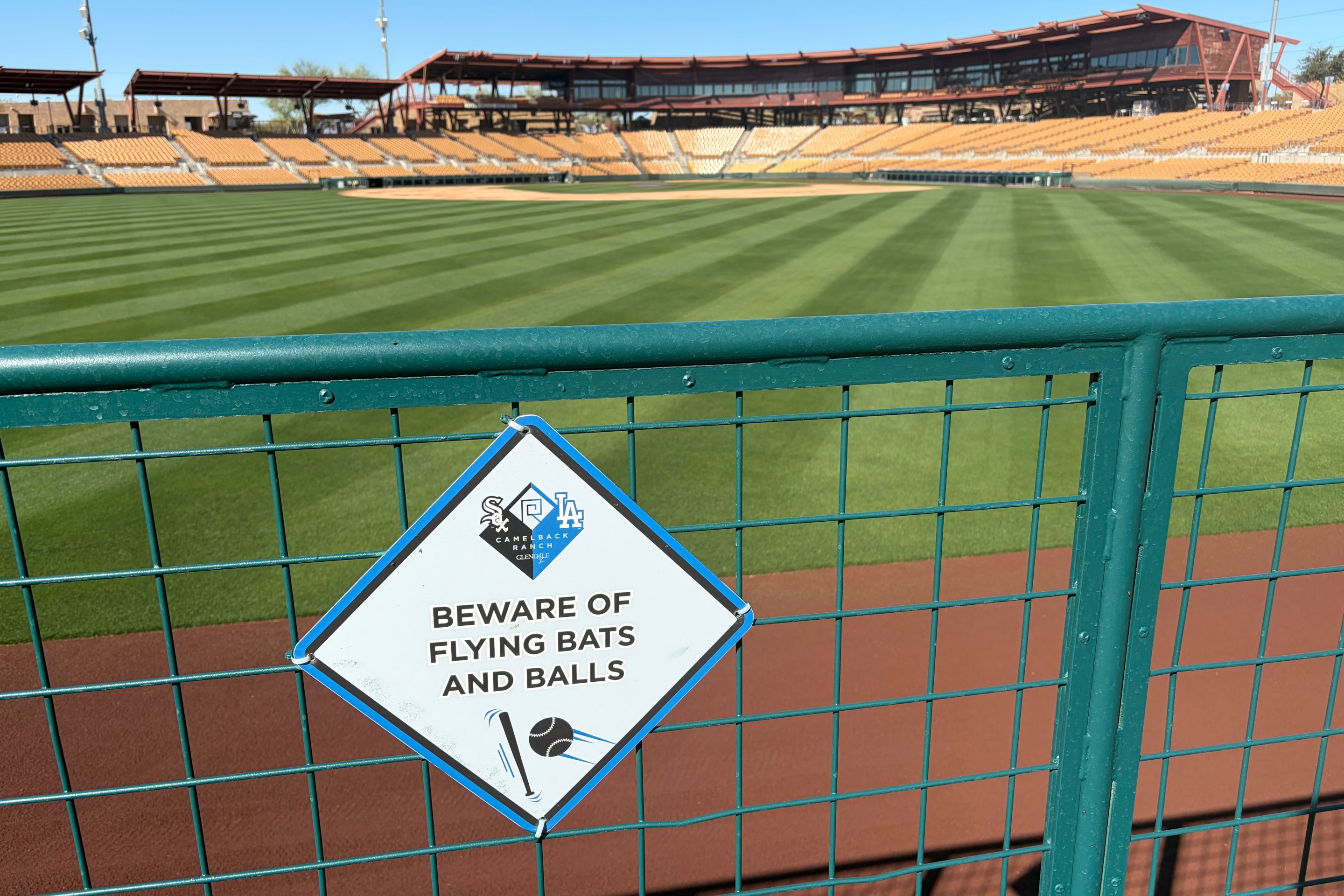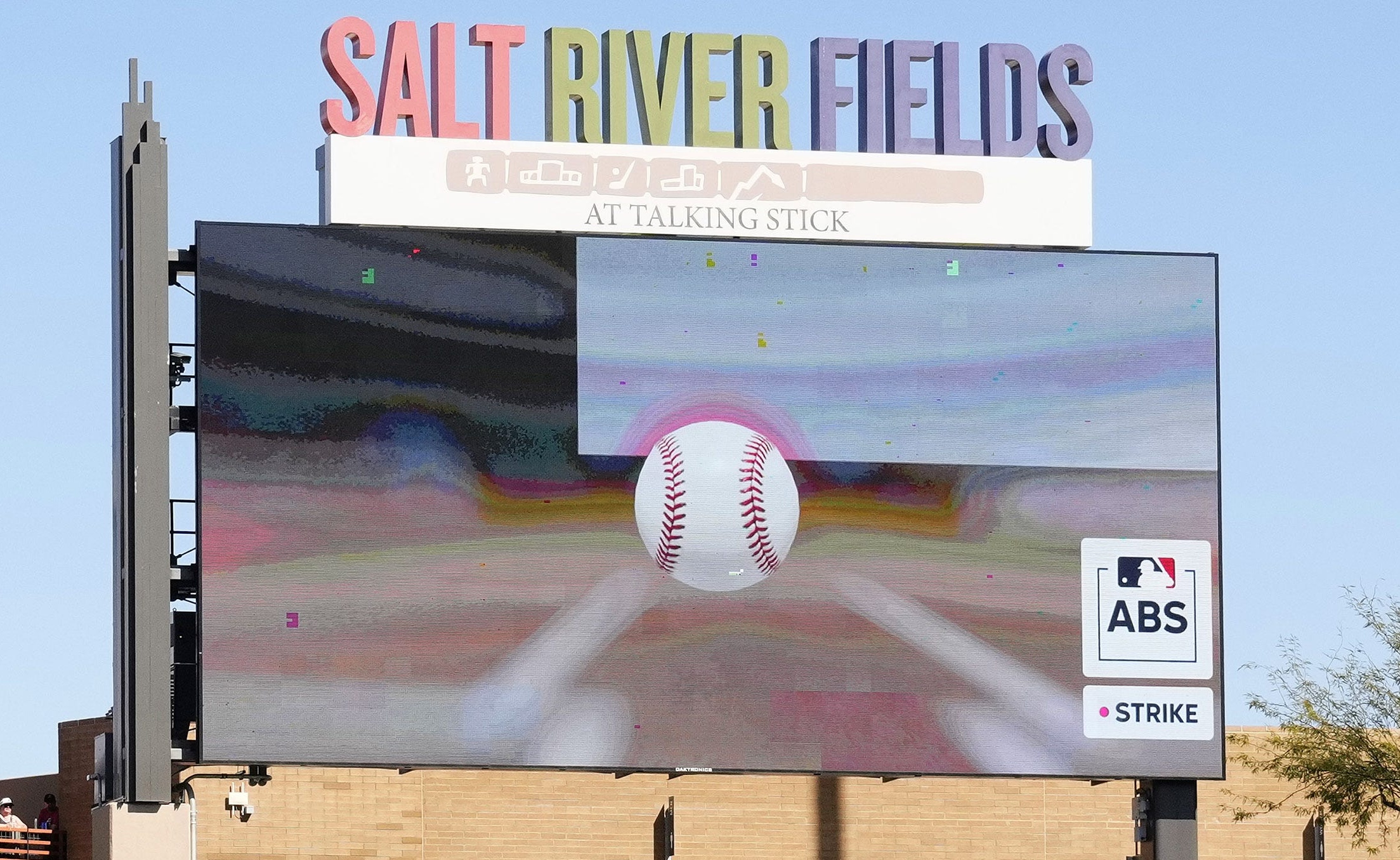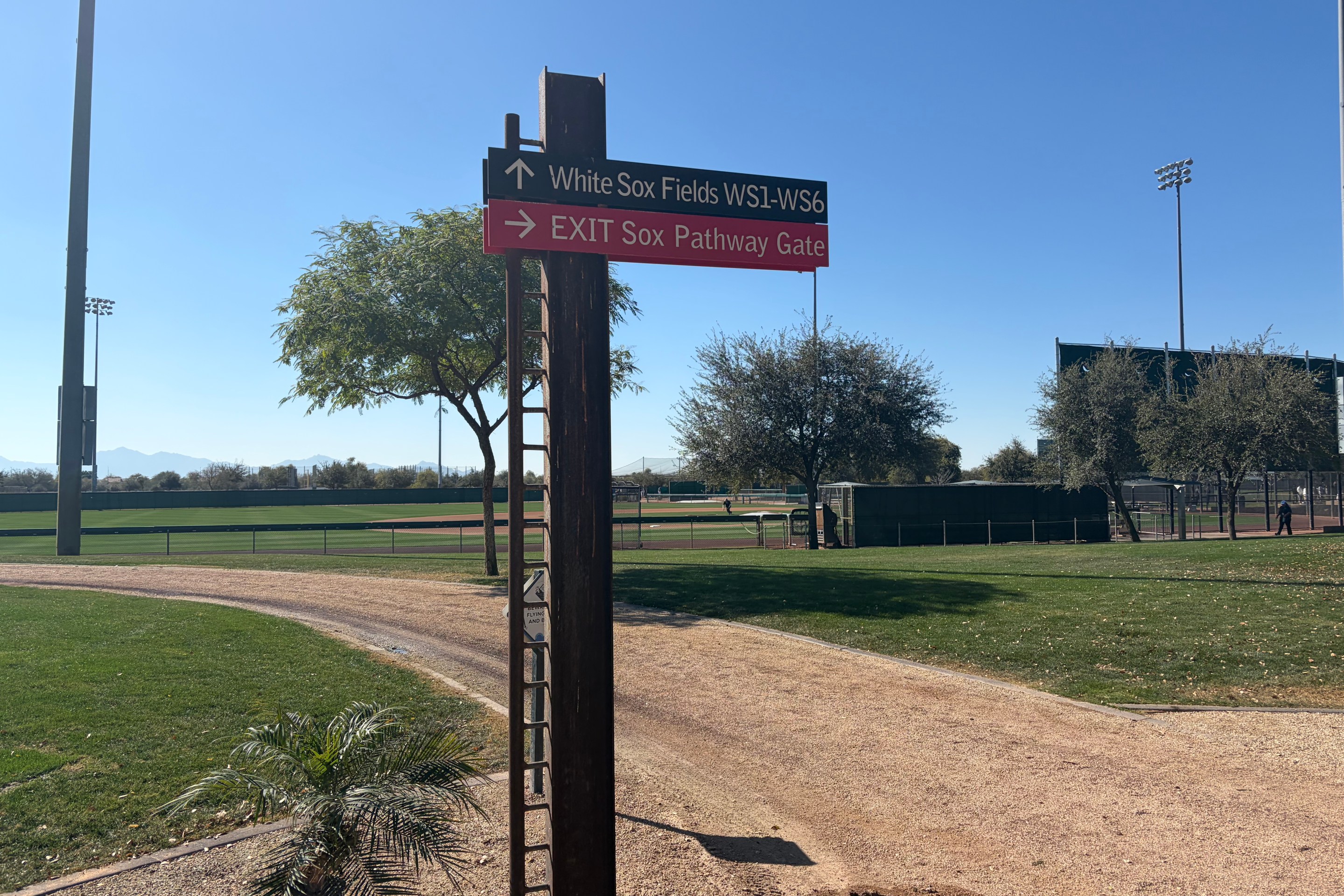Understanding that offseason content does not grow on trees, the White Sox continue to mete out coaching staff announcements, following up Tuesday's introduction of their pitching coaches by officially announcing Derek Shomon as the new hitting coach on Friday afternoon.
As with their pitching coaches, the new entry to the staff is taking the lead job above an incumbent, as the Sox announced that Joel McKeithan will return as assistant hitting coach. The team also made official the hire of former Orioles assistant Sherman Johnson Jr. as their new minor league hitting coordinator, a role previously filled by Alan Zinter.
Earlier in the week, Will Venable and Chris Getz insisted that neither prioritized getting their guys on the 2026 coaching staff, since the latter confirmed that no, he and Shomon did not forge some lasting bond with the longtime Schaumburg Boomers coach during the one summer where the White Sox had to use their stadium for their alternate training site in 2020. But in hiring hitting director Ryan Fuller's former Orioles counterpart in Sherman, that points to the sort of pre-existing connection that might carry real weight.
As the White Sox offense sputtered to historic lows in 2024, Getz was reluctant to move on from Marcus Thames and his good relationships with players just for the sake of making a change. But having Fuller on staff for a season helped established the criteria for a more meaningful search, since he also influences what types of hitters the Sox add to the organization.
"We were really looking for someone that would align with our entire hitting group, starting with Ryan Fuller, and we were able to accomplish that with Derek and Sherman," Getz said. "Both had preexisting relationships with them, so there was early familiarity."
Shomon's ties to Fuller are more through industry circles than any direct work experience with him, and the Sox's director of hitting would more readily point out their track record of developing hitters or similarly thoughtful approach to fostering different training environments. Shomon's role in aiding Kyle Stowers' All-Star season with Miami is an example of the former, and his long answers in his introductory Zoom session hint at the latter. Fuller views one of his job goals as building the best group of hitting coaches in the league -- probably a good aim for a lower budget team -- and Shomon and Johnson are here because they fit into that vision, but Sox leadership stipulates that Shomon emerged separately as well.
"You start with a list of names," Venable said. "You tap into your network, and some of these guys. You tap into multiple networks and you hear about the same names. Sho was one of those guys that I heard from different networks, and you know that guys are special when that happens."
While Getz spoke about having a consistent White Sox identity on offense that accounts for situational hitting and adapts to the pitching and defensive plans against them, Venable spent too many postgame briefing sessions focused on his team needing to be more aggressive on the fastball to not know what sort of ideological alignment he would need to have with the next hitting coach.
"When he says we have to take away or hit fastballs and we need to perform against fastballs, ultimately what he’s saying is we have to take away something from that guy," Shomon said. "It may not be the heater, it may be something else, but we are committed, we are convicted, we are prepared to take something away from first pitch. And then we will be ready to pivot to whatever the next thing is that we have to do. I think that’s a common goal."
Shomon is a Glenbrook South grad who recalls bringing a broom and dustpan to school as a sophomore to celebrate the White Sox's World Series victory in 2005, so after a winding path into professional coaching, there is no shortage of personal thrill for him to return to the South Side. But after spending last year working under a newly very progressive-minded Marlins front office, he's planning to bring more challenging pregame work to a young offense that's trying to build on some developmental gains.
Or as he put it, "practice harder, man."
"The major league team the second half being top-10 in runs scored per game, OPS was in the top half, their chase percentage overall was its best in the last three or four seasons, we saw an increase in walks," Shomon said of the Sox. "Those were all really good signals. You are heading in the right direction. You are figuring out ways to create 90s in the pursuit of scoring runs in other ways than just slug."
"Upping the training environment, practices as close to the game as possible. Present as many solutions as possible for that individual. Really try to avoid the identity crisis, meaning what’s the best version of you as a hitter? How do we get you to be that guy more times than not? How do we enhance that profile?"
The White Sox invested in Trajekt machines last year to help replicate game-speed reps, and both Shomon and Fuller are touting the necessity for more challenging pregame work, but it's often hard for the public to see evidence of that beyond hitters looking at iPads in the dugout or quotes about intensive meetings. Most on-field batting cage reps against pitching machines take place in early work before the gates open to fans, and the traditional batting practice that they do see often looks the same as what they grew up seeing.
There will still be traditional batting practice ahead of White Sox games in 2026, but Shomon says you'll see some differences with a deeper look.
"It has its place but you can take something like that and still level it up," Shomon said. "Maybe it’s not just fastballs, right? Maybe you are going one round of just spin, or you are forcing guys to have to make decisions. Again, all in pursuit to how do we make training environments as close to the game as possible as much as we can, so things are more likely to transfer into in-game performance."
It's always tricky to figure out how much credit to assign to specific coaches for specific players breaking out. The White Sox took a more direct route, mentioning Marlins All-Star outfielder Kyle Stowers' breakout season in their press release for Shomon. Amid an afternoon discussing team offensive strategy, and asked for broad takeaways for how his work with Stowers could apply to his future work with the White Sox, Shomon leapt into personal anecdotes. He detailed long conversations they had in spring, and how it allowed him to be direct with Stowers during an early-season slump.
"That’s a person-first mentality and always keeping that in mind as we move forward and make adjustments to try to improve in-game performance," Shomon said.
With that in mind, with his hire now official after weeks of talking to White Sox executives and coaches about his new role, Shomon plans to start reaching out to players by the end of the week.






